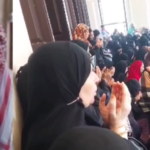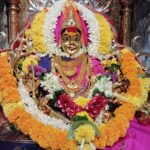Anupama Nair
www.mediaeyenews.com
Our great Prime Minister Modi inaugurated the Amrit Mahotsav or celebration of India’s 75th year of Independence. We will be celebrating this event till 2022. I am going to write a feature on all those great men and women who fought against foreign invasion not just against the British. What would the history of India be without her Kohinoor Heera – Netaji Subhash Chandra Bose? 23rd January 2022, is the 125th birth anniversary of the great man, due to whose efforts we are free today.
To understand the story of Netaji, I need to take you back many centuries before. India was ruled by the Mughals. It is a credit to the British, how the merchants who came to do trade with India, within 300 years became the masters of the entire land from Khyber to Chittagong and from Kashmir to Comorin (now Kanya Kumari), i.e., entire Sub-Continent. The English East India Company was formed by merchants of England to trade with Asia and India the “golden bird” in particular and America. It was formed by Royal Charter on New Year’s Eve on 1600. They landed in the Indian subcontinent on August 24, 1608, in Surat (Gujarat).
The Battle of Plassey (1757) and Battle of Buxar (1764), smoothened their path to conquer the sub-continent. Robert Clive became the first Governor General of British India. By spinning a web of deceit, and many laws like Subsidiary Alliance (Lord Wellesley) and Doctrine of Lapse (Lord Dalhousie), they succeeded in ruling the entire sub-continent by 19th century. Jawaharlal Nehru in his book Discovery of India quoted “British rule in India had an unsavory beginning and something of that bitter taste has clung to it ever since”.
Subhas Chandra Bose was an Indian nationalist who fought against British colonial rule, who soon became a national hero in India. Subhas Chandra Bose was born to Prabhavati and Jankinath Bose on 23 January 1897 in Cuttack. Prabhavati, as she was lovingly called Mā jananī was the anchor of family life, and had her first child at age of 14 and had 13 children thereafter. Subhas was the ninth child and the sixth son. His father was a successful lawyer and government pleader, was loyal to the British.
From his mother, Subhas inherited a nurturing spirit, looking for situations to help people in distress, preferring gardening around the house to joining in sports with other boys. He then became acquainted with the ideas of Sri Ramakrishna and Swami Vivekananda. His love for the motherland increased when he read the book Anand Math written by Bankim Chandra that was popular among young Hindu youth.
In February 1916, Bose was alleged to have masterminded, or participated in, an incident involving E.F. Oaten, Professor of History at Presidency. It was said Oaten had made rude remarks about Indian culture, and superiority of the British. A few days later, on February 15, some students accosted Oaten on a stairway, surrounded him, beat him with sandals, and ran away. Bose was expelled from the college and rusticated from the University. The incident shocked Calcutta and caused anguish to Bose's family and he was ordered back to his family home. In July 20, 1917, the Syndicate of Calcutta University granted him permission to return, but to another college called Scottish Church College, received his B.A. in 1918. At his father's urging, Subhas Bose agreed to travel to England to prepare and appear for the Indian Civil Service (ICS) examination.
Subhas Bose, arrived in Bombay in 1921 and immediately set about arranging an interview with Mohandas Gandhi, who was aged 51, and was the leader of the Non-cooperation Movement. In Bose's account of the meeting, written many years later, “I pilloried Gandhi with question after question, and his answers were vague, his goals unclear, his plan for achieving them not thought through”. Gandhi and Bose differed in this first meeting as for Gandhi non-violent means to any end were non-negotiable, and Bose thought, all means were acceptable for freedom. However, Mr. Gandhi requested him to join the Congress and Bose was part of it for 20 years.
He started the newspaper ‘Swaraj’ and took charge of publicity for the Bengal Provincial Congress Committee. His mentor was Chittaranjan Das who was a spokesman for aggressive nationalism in Bengal. Bose was elected the President of All India Youth Congress and also the Secretary of Bengal State Congress in 1923. He was also the editor of the newspaper "Forward", founded by Chittaranjan Das. Bose worked as the CEO of the Calcutta Municipal Corporatiom for Das. However, he was arrested in 1925, for participating in nationalistic movement and sent to prison in Mandalay, where he contracted tuberculosis.
In 1927, after being released from prison, Bose became the general secretary of the Congress party and worked with Mr. Nehru for independence. In late December 1928, Bose organized the Annual Meeting of the Indian National Congress in Calcutta. A little later, Bose was again arrested and jailed for Civil Disobedience Movement. During the mid-1930s Bose travelled in Europe, visiting Indian students and European politicians, including Mussolini.
After the outbreak of Second World War, Bose launched a campaign of mass Civil Disobedience to protest against Viceroy Lord Linlithgow's decision to declare war on India's behalf without consulting the Congress leadership. Having failed to persuade Gandhi of the necessity of this, Bose organized mass protests in Calcutta calling for the removal of the "Holwell Monument. He was again arrested, but was released following a seven-day hunger strike. Bose's house in Calcutta was kept under surveillance by the CID loyal to the British. He decided to escape to Germany, via Afghanistan and Russia.
In 1943, Bose believed Germany would not be of any help for Independence, and left for Japan. He travelled with the German submarine U-180 around the Cape of Good Hope to the southeast of Madagascar, where he was transferred to the I-29 for the rest of the journey to Imperial Japan. This was the only civilian transfer between two submarines of two different navies in World War II.
He formed the Indian Army to free India. I had written an article few days back. Even when faced with military reverses, Bose was able to maintain support for the Azad Hind movement. Bose's most famous quote was "Give me blood, and I shall give you freedom!" In this, he urged the people of India to join him in his fight against the British imperialism. Spoken in Hindi, Bose's words are highly evocative. The troops of the INA were under the aegis of a provisional government, the Azad Hind Government, which came to produce its own currency, postage stamps, court and civil code, and was recognized by Axis states – Germany, Japan, Italy, Croatia, and the Philippines under the Japanese control. This government participated in the Greater East Asia Conference as an observer in November 1943.
On the Indian mainland, an Indian Tricolor, similar to the flag of the Congress, was raised for the first time in the town of Moirang, in Manipur, in north-eastern India. The adjacent towns of Kohima and Imphal were placed under siege by divisions of the Japanese Army, working with the Burmese National Army, and the Brigades of the INA, called as the Gandhi and Nehru Brigades. The attempt at conquering the Indian mainland was called as ‘Operation U-Go’.
However, with the fall of Rangoon, Bose's government ceased to be an effective political entity and a large proportion of the INA troops surrendered under Lt Col Loganathan. The remaining troops retreated with Bose towards Malaya and Thailand. Japan's surrender at the end of the War also led to the surrender of the remaining soldiers of the Indian National Army. The INA prisoners were then repatriated to India and some tried for treason.
Then came the plane crash on 18th August 1945 in Taiwan and Bose was believed to have died of third-degree burns. However, many among his supporters, especially in Bengal, refused at the time, and have refused since, to believe either the fact or the circumstances of his death. Conspiracy theories appeared within hours of his death and have thereafter had a long shelf life, keeping alive various myths about Bose. It is now believed that Bose survived the crash was living in Russia, but there is no proof of such story. His death is still a mystery.
Netaji’s wife and partner was Emily Schenkl and had a daughter Anita Brigitte Bose. It was Anita who claimed her father did not die after the crash, as did Bose’s elder brother Sarat, who stated he had a feeling his brother was still alive. Sarat and his family visited Emily in Vienna in 1948. Sarat said in an interview that Subhas could not return to India, even if he wished because of his political rivalry with the Congress.
In 2021, the Government declared 23rd January as Parakram Divas to commemorate the birth anniversary of Subhas Chandra Bose. This year our Prime Minister stated the Republic Day celebration will start from 23rd January itself. Floral tributes were paid to Bose on his birth anniversary in the Central Hall of the Parliament House. Modiji announced the Government’s plan to install a grand granite statue of Netaji at India Gate. Till the grand statue is completed, PM Modi said, “a hologram statue would be present at the place identified for the granite statue. This would be a symbol of India's indebtedness to him," the Prime Minister said in a tweet. “I will unveil the hologram statue on 23rd January, Netaji's birth anniversary," he wrote.'
"India gratefully pays homage to Netaji Subhas Chandra Bose on his 125th birth anniversary. The daring steps that he took to fulfill his fierce commitment to the idea of a free India — Azad Hind — make him a national icon. His ideals and sacrifice will forever inspire every Indian," President Kovind tweeted.
Amit Shah also remembered Netaji for his "unparalleled struggle" for the motherland. "He shook the foundation of foreign rule by organizing the youth with his extraordinary patriotism, indomitable courage and stunning speech. His unparalleled sacrifice, tenacity and struggle for the motherland will always guide the country," he said.
Meanwhile, West Bengal chief minister Mamata Banerjee appealed to the central government that Netaji's birthday should "be declared a national holiday to allow the country to pay homage to the national leader.
I certainly hope this Kohinoor would be granted Bharat Ratna.
































